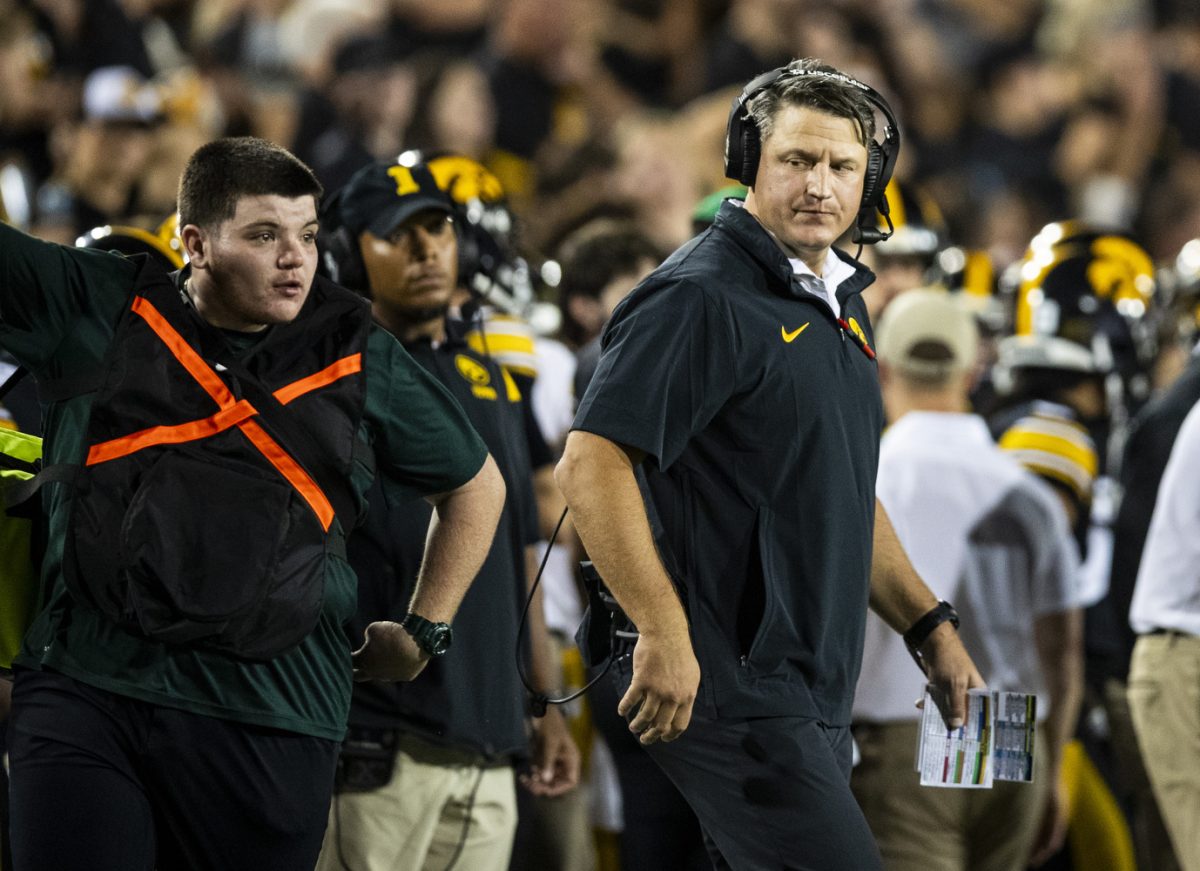Down a winding road, through a tunnel of trees, sunlight escapes through the foliage to light the way to Lake Macbride, the home of the Macbride Raptor Project.
At this peaceful lake, Iowa’s birds of prey have been living and rehabilitating since 1985.
Patients of the Raptor Project are sick or injured birds of prey, also known as raptors, said Jodeane Cancilla, the project’s coordinator.
“The majority of bird injuries are the result of human activities, whether intentional or unintentional,” she said.
Injured raptors first go to the Kirkwood medical center for initial treatment. Here, birds undergo X-rays, examinations, and medical treatment, said Anne Duffy, a professor at the Animal Health Technology Department.
“Birds usually come in with broken wings,” she said. “The amount of time they spend in the clinic depends on the injury.”
The medical center at Kirkwood has approximately 50-60 students studying in the veterinary-technician program, said Randy Ackman, assistant professor at Kirkwood.
“It is an excellent program,” he said. “Students get a great opportunity, and they do a terrific job.”
After healing at the medical center, raptors are transported to the Macbride Nature Recreation Area, which hosts the “flight cage,” an open outdoor area where healing birds regain strength and get acclimated to outdoor conditions.
Volunteers are also in the process of constructing a second, larger flight cage at the center. The new cage will be able to house larger birds, such as eagles and hawks.
Some raptors do not get better or are permanently disabled, Cancilla said.
“These birds have had permanent damage to wings or loss of eyesight,” she. “Others were found and raised by humans and are unable to return to the wild.”
Birds raised in captivity acquire a “human imprint.” This means the birds believe they look like us and will fight other members of their species, Cancilla said.
Permanently disabled raptors are adopted by various Iowa locations or are given a home at Macbride. These birds are given place to live and are fed similarly to their natural diet.
One resident of the center, Spirit, is a full-grown bald eagle. After damaging her wing in 1989, Spirit was given a home at Macbride. A few other permanent residents include Wannago, a great horned owl that lost her left eye, Aquila, a golden eagle with back and hip injuries, and Aura, a turkey vulture raised by humans.
If raptors do fully recover, they are released back into the wild near the location they were found, Cancilla said.
The center is a collaboration between UI Recreational Services and Kirkwood Community College.
The Macbride Nature Recreation Area consists of 480 acres of land and is maintained by approximately 55 volunteers, including students from UI and Kirkwood.
The project will host “Hawk Watch” on Sept. 26 from 9 a.m. to 2 p.m. at the Nature Recreation Area. Participants will have the opportunity to witness a hawk-identification seminar, live raptor program, and hawk watching.
The center also hosts a bird blind, humming bird and butterfly garden, as well as approximately 350 education programs a year.
“It is a great place to get some fresh air and just relax,” Cancilla said.






